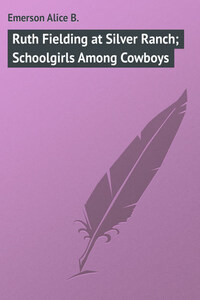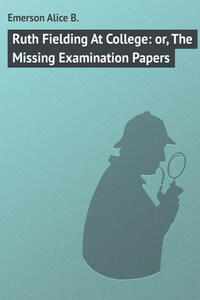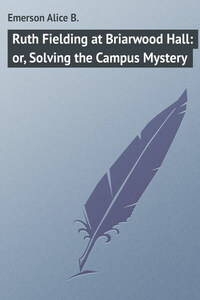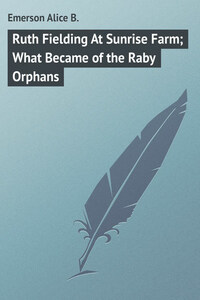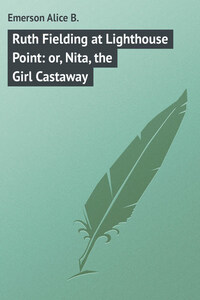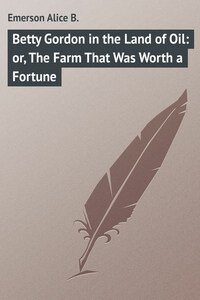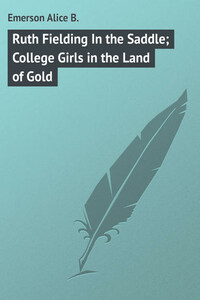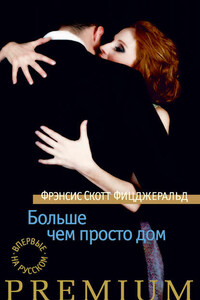CHAPTER I – “OLD TROUBLE-MAKER”
Where the Silver Ranch trail branches from the state road leading down into Bullhide, there stretch a rambling series of sheds, or “shacks,” given up to the uses of a general store and provision emporium; beside it is the schoolhouse. This place on the forked trails is called “The Crossing,” and it was the only place nearer than the town of Bullhide where the scattered population of this part of Montana could get any supplies.
One of Old Bill Hicks’ herds was being grazed on that piece of rolling country, lying in the foothills, right behind the Crossing, and two of his cow punchers had ridden in for tobacco. Being within sight of rows upon rows of tinned preserves (the greatest luxury extant to the cowboy mind), and their credit being good with Lem Dickson, who kept the store, the two cattle herders – while their cayuses stood with drooping heads, their bridle-reins on the road before them – each secured a can of peaches, and sitting cross-legged on the porch before the store, opened the cans with their knives and luxuriated in the contents.
“Old man’s nigh due, ain’t he?” asked Lem, the storekeeper, lowering himself into a comfortable armchair that he kept for his own particular use on the porch.
“Gittin’ to Bullhide this mawnin’,” drawled one of the cowboys. “An’ he’s got what he went for, too.”
“Bill Hicks most usually does git what he goes after, don’t he?” retorted the storekeeper.
The other puncher chuckled. “This time Old Bill come near goin’ out after rabbit an’ only bringin’ back the hair,” he said. “Jane Ann is just as much of a Hicks as Bill himself – you take it from me. She made her bargain b’fore Old Bill got her headed back to the ranch, I reckon. Thar’s goin’ to be more newfangled notions at Silver Ranch from now on than you kin shake a stick at. You hear me!”
“Old Bill can stand scattering a little money around as well as any man in this State,” Lem said, ruminatively. “He’s made it; he’s saved it; now he might’s well l’arn to spend some of it.”
“And he’s begun. Jane Ann’s begun for him, leastways,” said one of the cowboys. “D’ye know what Mulvey brought out on his wagon last Sat’day?”
“I knowed he looked like pitchers of ‘movin’ day’ in New York City, or Chicago, when he passed along yere,” grunted the storekeeper. “Eight head o’ mules he was drivin’.”
“He sure was,” agreed the cow puncher. “There was all sorts of trucks and gew-gaws. But the main thing was a pinanner.”
“A piano?”
“That’s what I said. And that half-Injun, Jib Pottoway, says he kin play on the thing. But it ain’t to be unboxed till the boss and Jane Ann comes.”
“And they’ll be gittin’ along yere some time to-day,” said the other cowboy, throwing his empty tin away. “And when they come, Lem, they’re sure goin’ to surprise yuh.”
“What with?”
“With what they sail by yere in,” drawled the puncher.
“Huh? what’s eatin’ on you, Bud? Old Bill ain’t bought an airship, has he?”
“Mighty nigh as bad,” chuckled the other. “He’s bought Doosenberry’s big automobile, I understand, and Jane Ann’s brought a bunch of folks with her that she met down East, and they’re just about goin’ to tear the vitals out o’ Silver Ranch – now you hear me!”
“A steam wagon over these trails!” grunted the storekeeper. “Waal!”
“And wait till Old Bill sees a bunch of his steers go up in the air when they sets eyes on the choo-choo wagon,” chuckled Bud. “That’ll about finish the automobile business, I bet yuh!”
“Come on, Bud!” shouted his mate, already astride his pony.
The two cowboys were off and lashing their ponies to a sharp run in half a minute. Scarcely had they disappeared behind a grove of scrub trees on the wind-swept ridge beyond the store when the honk of an automobile horn startled the slow-motioned storekeeper out of his chair.
A balloon of dust appeared far down the trail. Out of this there shot the long hood of a heavy touring car, which came chugging up the rise making almost as much noise as a steam roller. Lem Dickson shuffled to the door of the store and stuck his head within.
“Sally!” he bawled. “Sally!”
“Yes, Paw,” replied a sweet, if rather shrill, voice from the open stairway that led to the upper chamber of the store-building.
“Here comes somebody I reckon you’ll wanter see,” bawled the old man.
There was a light step on the stair; but it halted on the last tread and a lithe, red-haired, peachy complexioned girl looked into the big room.
“Well, now, Paw,” she said, sharply. “You ain’t got me down yere for that bashful Ike Stedman, have you? For if he’s come prognosticating around yere again I declare I’ll bounce a bucket off his head. He’s the biggest gump!”
“Come on yere, gal!” snapped her father. “I ain’t said nothin’ about Ike. This yere’s Bill Hicks an’ all his crowd comin’ up from Bullhide in a blamed ol’ steam waggin.”
Sally ran out through the store and reached the piazza just as the snorting automobile came near and slowed down. A lithe, handsome, dark girl was at the wheel; beside her was a very pretty, plump girl with rosy cheeks and the brightest eyes imaginable; the third person crowded into the front seat was a youth who looked so much like the girl who was running the machine that they might have changed clothes and nobody would have been the wiser – save that Tom Cameron’s hair was short and his twin sister, Helen’s, was long and curly. The girl between the twins was Ruth Fielding.
